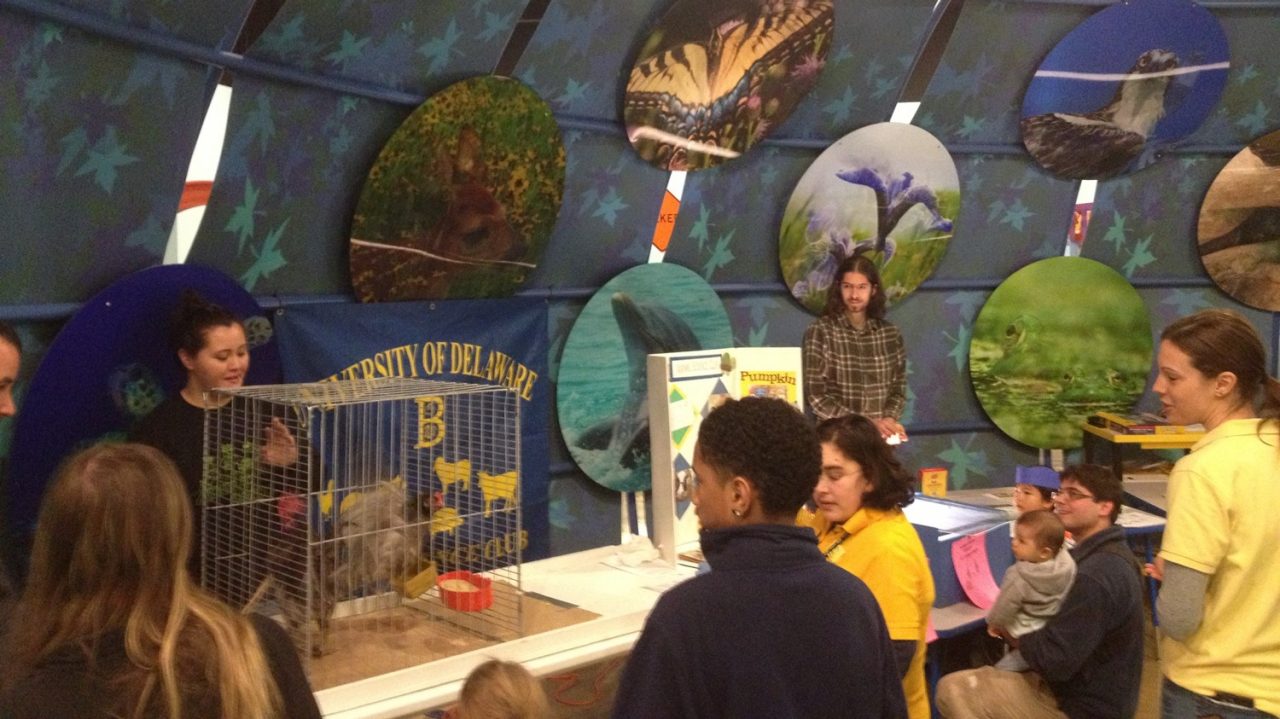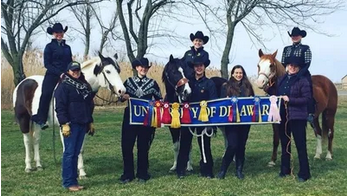
Animal Biosciences major
Major in animal biosciences at the University of Delaware: youtube.com/watch?v=H7oLUEry6RE
Why major in animal biosciences?
Animal bioscientists are needed to answer questions related to how animals and animal systems function. They are interested in solving problems related to producing healthy and productive livestock and companion animals such as horses. Students interested in fundamental biology of any kind of animal will find this a focused, hands-on major with a variety of in-demand career options available after graduation. Students that graduate from this major are prepared to pursue post-graduate, research-based degrees (M.S. and/or Ph.D.) in the animal biosciences. The curriculum includes an animal science core (anatomy, nutrition, physiology, health, genetics, and behavior) complemented by animal bioscience interest areas in animal nutrition, animal physiology and animal health.
Uniqueness of the program
Students will develop expertise in the interest area of their choice to enhance their application for graduate programs in that area. The curriculum also includes pre-requisite courses suggested for admission to graduate programs in animal science and in biology (calculus, chemistry, organic chemistry, biochemistry, and microbiology). Among our faculty, animal bioscientists are engaged in research and education in animal nutrition, animal virology, animal immunology and animal geneticists.
For more information, visit the UD Online Catalog.
This sample shows just one possible pathway to earning a bachelor of science degree in Animal Biosciences in four years. This plan does not replace the advice of your advisor.
Course highlights
Instructors introduce how domestic food animals function, genetics, nutrition, reproductive physiology, behavior and animal health. The course begins with a dialogue about the human-animal bond and the role of animals in society, and ends with the discussion of how agricultural animals are managed to produce safe and healthy food.
Instructors introduce the concept of One Health — the integration of human, animal and environmental health. The ultimate goal of One Health is prevention and early intervention, moving upstream of a health problem. Class discussion covers worldwide animal production practices, habitat destruction and other human activities, environmental changes, and the incidence of zoonotic outbreaks. Students focus on bacterial, viral and fungal zoonotic and emerging diseases like COVID-19, agriculture and the use and misuse of antibiotics in animal and human health.
Instructors cover the relationship between form and function in domestic farm animals. Students conduct comparative examination of body systems in order to better understand the various management practices employed in animal agriculture.
Modern technologies heighten the inexorable links between the animals and their environments, making environmental management more important. Instructors discuss the principles of animal environment management related to companion, farm and research animals. Course laboratories reinforce development of hands-on skills.
Instructors teach the fundamentals of physiology and lactation involved in initiation, maintenance and cessation of lactation, neuroendocrine control of lactation, nutrient absorption and processing by mammary gland and control of milk composition. Topics include mammals of commercial dairy importance as well as rodents, horses and humans.
Related student organizations

APPLY NOW
Associate Director, CANR Undergraduate Recruitment


